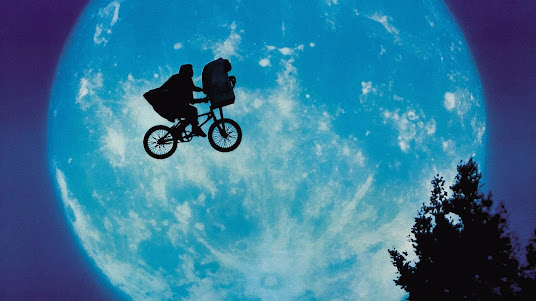What I Learned About Film Criticism at Cannes
The famous Palais Theatre at Cannes, France (source: New York Times)
I am often accused by friends as being somewhat of a snob when it comes to movies, and part of what made me one was the best summer I experienced during college. In 2017, I was fortunate enough to attend the Cannes Film Festival in France as part of a study abroad program.
The program centered around teaching students interested in film about the fields of criticism and distribution. The trip comprised two corresponding courses; Film Criticism and International Film Marketing. As a burgeoning film nerd, I was excited to go, but couldn’t begin to imagine the reduced awakening that I was in for when I got to the festival.
History of the Festival
The Cannes Film Festival, named after the French coastal city that hosts it, has taken place annually every summer since 1946. The first festival was actually in 1939. It began as an alternative to the Venice Film Festival, then the biggest film festival in Europe, which was under the influence of Musolinii’s fascist regime. When the Venice Festival began to prioritize fascist propaganda, the French government offered an international festival that would showcase a film from every nation.
Eventually, Cannes grew into a multipronged cultural event where filmmakers from all corners of the globe exchange art and ideas. Films that screen there typically fall in one of three categories. A handful of films are submitted for competition, where a panel of judges (usually high profile directors and actors) give them various awards.
The most prestigious of these is the Palme D'Or, which in layman's terms is the festival's equivalent to giving a film “Best Picture.” Other films are submitted out of competition, where they debut at the festival but do not compete for awards. Finally, there is the International Film Market, where independent filmmakers from across the globe show their films in hopes of finding a distributor.
New Challenges
This experience challenged me as a writer. Besides having to adjust to the format and editorial standards of a published film critic, I was exposed to a new subject matter that was more difficult to write about. I considered myself to have a pretty solid background in film before going, but much of my exposure was limited to American movies, particularly high profile studio movies. I had very little knowledge, for example, of arthouse or international films, which typically don’t try to have mass appeal and often experiment with narrative and film language.
Imagine my confusion upon first seeing something like “The Square” (that year’s Palm D’or winner), a Swedish black comedy that’s a satire of the modern art world. In short, it was a movie about a world I had no reference to, delivered in a style I had no basis to judge.
The Square Movie Clip - Monkey Performance (2017) | Movieclips Indie
My reaction to some of the movies at Cannes (source: The Simpsons)
Obviously, I could not approach watching this movie the way I could mainstream movies. Since then, one of the rules I’ve adopted for criticism is to judge a movie on its own terms. This means understanding what the movie is trying to do and judging it on the merits it wants to achieve.
For example, stock characters and heightened dialogue is usually frowned upon, but for a movie that is intentionally campy, like a horror comedy along the lines of “The Evil Dead,” it might be appropriate. Likewise, I learned that I couldn't talk seriously about experimental films by the same criteria as the mainstream movies I was used to.
The Importance of Being Earnest
One of the hardest parts about writing film criticism is allowing yourself to be open about how a movie affects you. Roger Ebert, film critic for “The Chicago Sun-Times,” famously called movies “machines that generate empathy.” Film is an artform, therefore a core part of this function is to elicit an emotional reaction in its audience.
“For me, the movies are like a machine that generates empathy.” - Roger Ebert
c, you need to be honest about your relationship to a movie, whether it made you cry or just left you unaffected.
It’s the complete opposite of the notion that “film critics should be totally objective” whenever they talk about movies, or that art should just exist in a vacuum. These things are impossible and these points are always brought up by people who either lack any context or are mad that the critical consensus of a particular movie doesn’t align with their opinions.
Of course, one wants to avoid being overly maudlin when describing a film. After all, you’re a critic, which means you still have to think critically. This means rooting your opinions in the study of film, to dissect how its story elements, technical aspects, performances, and relationship to larger artistic trends allow you to understand how the movie is achieving its goals. It also allows you to understand when a movie is going for a cheap reaction instead of putting in the artistic work.
For example, one of the movies I was craziest about at Cannes was “How to Talk to Girls at Parties.” It was a sci-fi movie/teen romance that appealed to a lot of my personal tastes. It featured absurdist humor, classic punk soundtrack, anti-authoritarian themes. It was even based on a story by one of my favorite authors, Neil Gaiman (who I got to meet at the afterparty).
But when it was time to write up my review of the movie, I wasn’t satisfied with the final piece, because I failed to actually explain what made the movie function, and instead the whole review was just me recounting all the elements I enjoyed without tying it together into a tangible thesis.
My Best Review from Cannes
In contrast, one of the pieces I was more proud of was my write up about “The Florida Project,” an American independent movie that followed the lives of an impoverished mother and daughter living in a motel just outside of Walt Disney World.
In that review, I talked about my childhood memories of family vacations, and how our trip to the happiest place on earth invariably took us past low income areas, and how the movie forces us to confront the disparity between the middle and upper class vacation destination and the people within walking distance of it scraping to get by.
As a result of this experience,I came out as a more well rounded critic. A new world of film had opened up to me that challenged my notions of what a movie could be. Overall, what Cannes taught me most about being a writer was that it requires honesty, life experience, and an open mind.
Sources:
Cannes, M. de. (2021, June 11). History of the Film Festival. Retrieved February 6, 2023, from https://www.cannes.com/en/cannes-cinema/the-festival-de-cannes/history-of-the-film-festival.html
Editors, T. (2018, April 4). Video: Roger Ebert on empathy: Empathy: Roger Ebert. Empathy | Roger Ebert. Retrieved February 6, 2023, from https://www.rogerebert.com/empathy/video-roger-ebert-on-empathy

Comments
Post a Comment